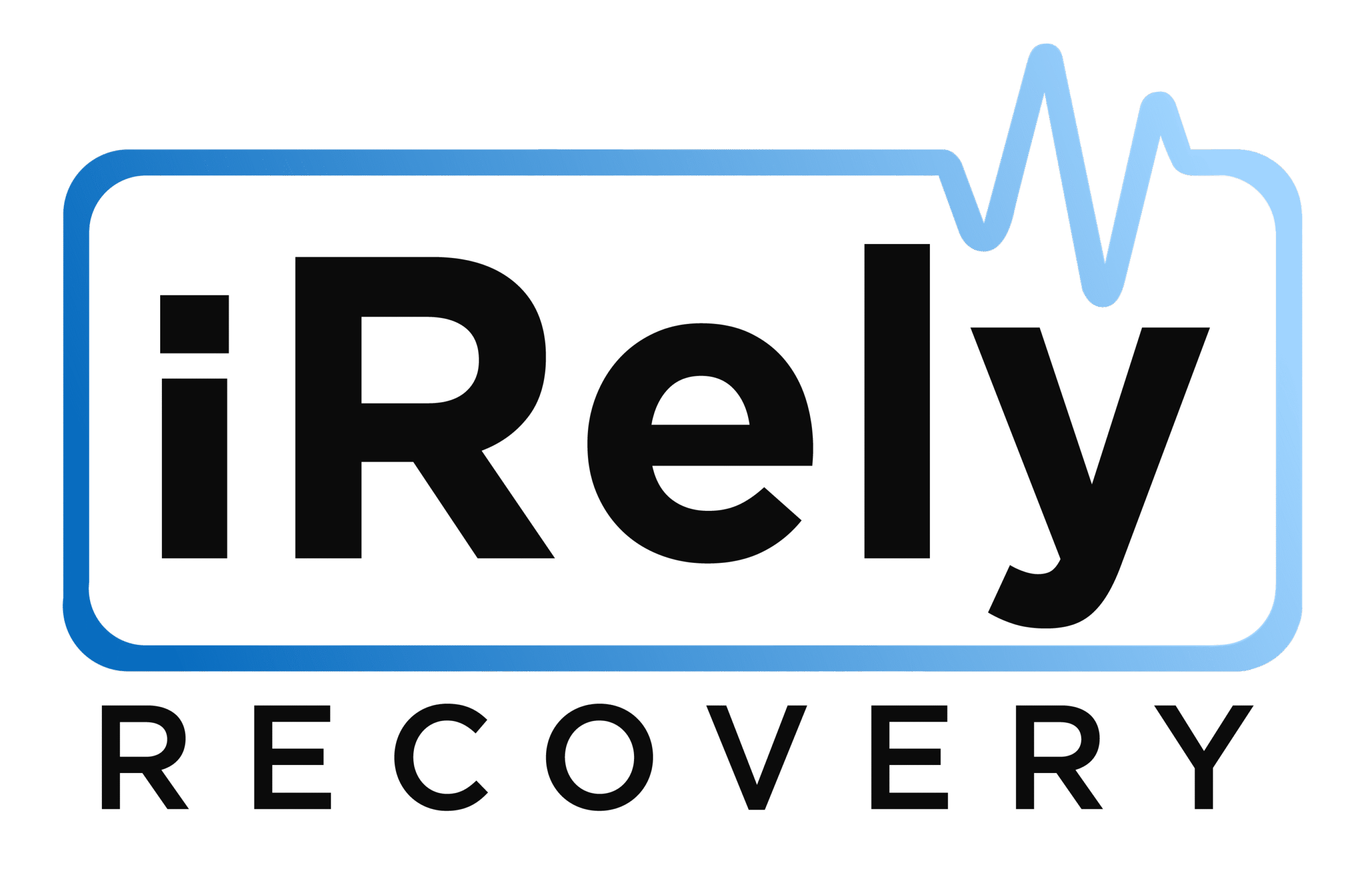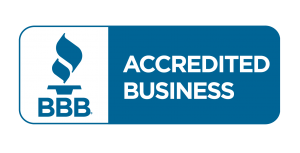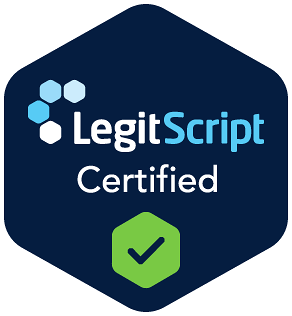One disorder is enough to knock you flat and upend your life, but two? That is when hope feels lost and progress seems unattainable.
If you’re struggling with a mental health disorder and relying on substances just to feel “normal,” it can feel overwhelming to think of doing anything else to manage your symptoms. Living with a dual diagnosis can be rough, especially when mental health disorders like anxiety, depression, bipolar disorder, or post-traumatic stress disorder (PTSD) collide with alcohol and drug abuse.
These conditions don’t just happen at the same time – they feed off one another. The more substances you use, the worse your symptoms get. And the worse you feel, the more substances you use. The cycle continues, and the only way to break it is with professional help and support.
At iRely Recovery, our dual diagnosis treatment centers in Los Angeles, California, are designed to tackle both mental health disorders and substance abuse to help you break your patterns, end the cycle, and live a healthier life.
KEY POINTS
- Dual diagnosis means you have a mental illness and an alcohol or drug addiction that occur at the same time.
- It’s more than a presence of two conditions – mental health conditions and addiction can play off each other, trapping you in a vicious circle.
- Treating one condition at a time isn’t enough. Dual diagnosis targets both together with personalized support.
DUAL DIAGNOSIS TREATMENTS
What Is Dual Diagnosis Treatment?
Dual diagnosis, also known as co-occurring disorders, happens when a mental health disorder and a substance use disorder exist at the same time. If you’ve ever used substances to numb trauma, ease anxiety in social situations, or lift yourself during a depressive episode, you’ve experienced how these conditions can emerge together.
In the past, treatment started by focusing on sobriety first and mental health later. But that approach failed to address how these conditions interact — often leading to relapse or incomplete healing.
Today, we know better. That’s why we treat both conditions simultaneously using integrative care and evidence-based therapies that target the root of the problem.[1]
Co-Occurring Disorders, Mental Health, and Substance Abuse
Dual diagnosis often works like a feedback loop: you feel anxious, so you drink to calm down. You’re depressed, so you use a drug to feel something. Flashbacks or intrusive thoughts from trauma won’t stop — so you turn to substances to forget.
But the relief is temporary. Over time, substances worsen your symptoms. You’re no longer just treating your anxiety or depression — now you’re also battling dependency and withdrawal.
Dual diagnosis treatment isn’t about fixing one part of the problem — it’s about breaking the cycle, disrupting the loop, and rebuilding your life through healthier, more sustainable strategies.
Symptoms of a Dual Diagnosis Disorder
The signs of a dual diagnosis depend on both the mental health disorder and the substance involved. However, common symptoms include insomnia, mood swings, brain fog, and withdrawing from people or activities you once enjoyed.[2] Signs of substance abuse also show up, such as needing more to feel the same effect, feeling like you can’t function without the substance, or constantly chasing your next high.[3] When the high wears off, the crash hits hard.
Why Do Co-Occurring Disorders Happen?
Dual diagnosis isn’t random — it’s the result of overlapping risk factors.
Family history plays a major role. If addiction or mental illness runs in your family, your brain may be predisposed to one or both disorders.[4] That doesn’t guarantee anything, but it raises your risk long before you ever touch a substance.
Trauma is another powerful trigger. Events like childhood abuse, neglect, violence, natural disasters, or living in a chaotic home can shift your brain into survival mode. According to research, trauma dramatically increases the risk of both mental illness and substance abuse.[5]
Both mental health conditions and addiction disrupt neurotransmitters like dopamine, serotonin, GABA, and norepinephrine — brain chemicals that regulate mood, focus, and emotional balance. Chronic disruption of these chemicals worsens symptoms and reinforces the addiction cycle.[6]
Your brain is wired to chase relief. That might mean feeling numb, relaxed, or just different. But the more you chase that feeling with drugs or alcohol, the harder it becomes for your brain to regulate itself without them.
Early substance use can also set the stage. Teens and young adults — whose brains aren’t fully developed — are at the highest risk of developing both addiction and mental health issues.[7]
Common Co-Occurring Disorders
While many mental health conditions can co-occur with substance use disorders, these dual diagnoses are especially common:[8]
- ADHD and stimulants: Medications like Adderall or Ritalin can be helpful — but also highly addictive. Chasing focus can lead to misuse and dependency.
- Depression and substances: Alcohol and marijuana may seem like relief at first but only deepen depressive symptoms over time.
- Anxiety and depressants: Drugs like alcohol, opioids, and benzodiazepines can calm your nerves short-term, but anxiety often rebounds stronger.
- PTSD and any substance: People with PTSD may use various substances to cope with flashbacks and intrusive thoughts, but without processing the trauma, symptoms worsen.
Dual Diagnosis Treatment in Los Angeles
At iRely Recovery, our dual diagnosis treatment goes beyond symptom management — we help you uncover the root causes, shift destructive patterns, and rebuild your life through evidence-based care:
- Individual therapy: Deep, one-on-one sessions that uncover what drives your pain and help you regain control.
- Group therapy: Connect with others facing similar struggles and find community in shared healing.
- Family therapy: Heal relationships and build boundaries with family members who’ve been affected by your addiction and mental health challenges.
- Cognitive Behavioral Therapy (CBT): Reframe negative thoughts and regain mental clarity.
- Dialectical Behavior Therapy (DBT): Learn emotional regulation tools to manage intense feelings and reactions.
- Trauma-Informed Therapy: We meet you with compassion, honoring your experiences without retraumatization.
- Acceptance and Commitment Therapy (ACT): Learn to accept what’s out of your control while committing to what matters most.
- Somatic Experiencing: Release trauma stored in the body and reduce chronic tension and hypervigilance.
- Experiential Therapy: Express what words can’t through art, music, and movement-based therapies.
- Mindfulness-Based Therapy: Stay grounded and calm through meditation, breathwork, and present-moment awareness practices.
Frequently Asked Questions About Dual Diagnosis Treatment Centers in Los Angeles
Why Does Dual Diagnosis Require Special Treatment?
Trying to detox and fix addiction without treating mental health is like bailing water out of a boat without fixing the leak. It needs to be addressed on both fronts simultaneously, or the pattern will never break.
What If I’ve Been in Rehab and Relapsed?
Then you start again. Relapse isn’t a failure. It’s a setback, and it’s common in dual diagnosis recovery. If it happens, we’ll help you regroup and rebuild.
How Long Is Dual Diagnosis Treatment?
That depends on you. Some dual diagnosis mental health and addiction treatment programs last 30 days, but others may last longer. Real recovery takes time, so there’s no reason to rush. We build everything around you and your progress, not a set timeline.
What Happens After Dual Diagnosis Treatment?
We don’t just leave you hanging after dual diagnosis. We’ll provide you with a comprehensive long-term aftercare plan that includes support, relapse prevention, peer groups, and any other resources you may need to stay connected and committed to your recovery.
Sources
[1] U.S. National Library of Medicine. (n.d.-a). Dual diagnosis. MedlinePlus. https://medlineplus.gov/dualdiagnosis.html#:~:text=A%20dual%20diagnosis%20is%20a,also%20diagnosed%20with%20mental%20disorders.
[2,3,4] Dual diagnosis: Definition & treatment. Cleveland Clinic. (2025, March 19). https://my.clevelandclinic.org/health/diseases/24426-dual-diagnosis
[5] U.S. National Library of Medicine. (n.d.-a). Dual diagnosis. MedlinePlus. https://medlineplus.gov/dualdiagnosis.html#:~:text=A%20dual%20diagnosis%20is%20a,also%20diagnosed%20with%20mental%20disorders.
[6,7] U.S. National Library of Medicine. (n.d.). Common comorbidities with Substance Use Disorders Research Report. National Center for Biotechnology Information. https://www.ncbi.nlm.nih.gov/books/NBK571451/#:~:text=Although%20some%20drugs%20may%20temporarily,to%20progression%20of%20this%20illness.
[8] Co-occurring disorders and other health conditions. SAMHSA. (n.d.). https://www.samhsa.gov/substance-use/treatment/co-occurring-disorders





